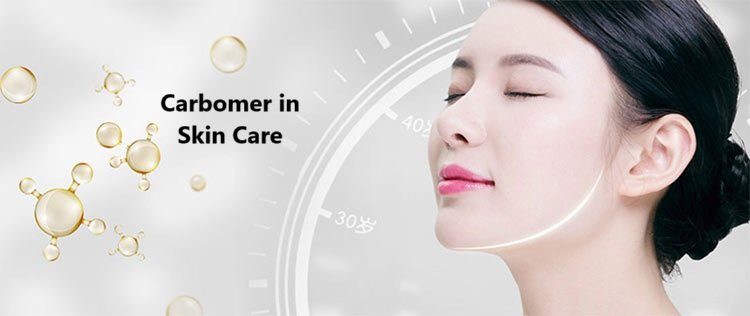
Carbomer in Skin Care
In the world of skincare, the focus often revolves around active ingredients like hyaluronic acid, retinol, and vitamin C. However, supporting ingredients like carbomer play a vital role in ensuring that products deliver their benefits effectively. While not a buzzword, carbomer is a common ingredient Carbomer in Skin Care and cosmetic products. This guide explores carbomer role, benefits, safety, and how it impacts the formulation and performance of your favorite skincare items.
What is Carbomer?
Carbomer is a term used to describe a group of synthetic polymers made from acrylic acid. These polymers are typically used as thickening agents, stabilizers, and emulsifiers in cosmetics and skincare formulations. Despite its synthetic origin, carbomer is safe, non-toxic, and widely approved for use in personal care products.
Chemical Composition
Carbomers are cross-linked acrylic acid polymers that form a gel-like substance when hydrated. They are usually listed on product labels with numbers (e.g., Carbomer 940 or Carbomer 980) to indicate different grades, which determine their viscosity and specific use.
Why is Carbomer Used in Skincare?
Carbomer’s unique properties make it an indispensable ingredient in skincare. Here are some key reasons why it’s used:
1. Thickening Agent
Carbomer is primarily used to give skincare products their gel-like or creamy texture. It ensures that formulations like serums, creams, and gels have a pleasant consistency, making them easy to apply.
2. Stabilizer
In formulations containing water and oil, carbomer acts as an emulsifier to stabilize the mixture. This prevents ingredients from separating, ensuring the product remains effective over time.
3. Suspension Agent
Carbomer helps evenly distribute and suspend active ingredients, ensuring they don’t settle at the bottom of the container. This is especially important in products with exfoliating particles or other suspended elements.
4. Enhances Spreadability
By improving the texture and viscosity of skincare products, carbomer ensures smooth application and even coverage.
Common Products Containing Carbomer
Carbomer is used across a wide range of skincare and cosmetic products, including:
1. Moisturizers
Carbomer gives creams and lotions their rich, smooth texture, making them easy to spread and absorb.
2. Serums
Many lightweight serums and gels use carbomer to achieve a non-greasy, silky consistency.
3. Sunscreens
Carbomer helps stabilize the active ingredients in sunscreens, ensuring even application and effective UV protection.
4. Cleansers
In foaming and gel-based cleansers, carbomer ensures the product remains thick while delivering a luxurious lather.
5. Eye Creams
Carbomer allows for the creation of lightweight, non-irritating formulas suitable for the delicate skin around the eyes.
6. Hair Care Products
Beyond skincare, carbomer is also used in styling gels and hair creams for its thickening and stabilizing properties.
Benefits of Carbomer in Skin Care
While carbomer doesn’t provide direct skincare benefits like hydration or exfoliation, its contribution to product formulation enhances the user experience and effectiveness of active ingredients.
1. Improves Product Stability
Carbomer ensures that formulations maintain their consistency, preventing the separation of ingredients and extending shelf life.
2. Enhances Application
With carbomer, products glide smoothly over the skin without leaving a sticky or greasy residue.
3. Supports Active Ingredients
By suspending active ingredients evenly, carbomer ensures consistent application and performance of the product.
4. Versatile in Formulations
Carbomer works well in water-based and oil-based formulations, making it a versatile ingredient for a wide range of products.
5. Compatible with Sensitive Skin
Carbomer is non-irritating and hypoallergenic, making it suitable for sensitive skin types.
How Carbomer is Made
Carbomer is synthetically derived through the polymerization of acrylic acid. While it is not a natural ingredient, its production process is safe, and the resulting material is inert and non-toxic. Manufacturers take special care to ensure that carbomer meets regulatory standards, making it safe for use in skincare and cosmetic formulations.
Safety and Concerns
Carbomer has been extensively studied for safety and is considered non-toxic, non-comedogenic, and non-irritating when used in skincare products.
1. Non-Comedogenic
Carbomer doesn’t clog pores, making it safe for acne-prone skin.
2. Hypoallergenic
Most people tolerate carbomer well, even those with sensitive skin or conditions like eczema.
3. Approved for Use
Carbomer is approved by regulatory authorities like the FDA and the European Commission for use in cosmetics and personal care products.
4. Rare Side Effects
While rare, some individuals may experience minor irritation if carbomer is used in high concentrations. Such cases are usually related to the overall formulation rather than carbomer itself.
Environmental Impact of Carbomer
As a synthetic ingredient, carbomer is not biodegradable. This raises concerns about its environmental impact when washed off and enters waterways. However, its concentration in products is typically very low, minimizing its environmental footprint. Sustainable practices in formulation and packaging can further reduce its impact.
Alternatives to Carbomer
For those seeking natural alternatives, the following ingredients can serve similar functions in skincare formulations:
1. Xanthan Gum
A natural thickener derived from sugar fermentation, xanthan gum is biodegradable and suitable for eco-conscious consumers.
2. Guar Gum
Extracted from guar beans, this plant-based ingredient thickens and stabilizes products naturally.
3. Cellulose Derivatives
Derived from plant fibers, cellulose gums offer a natural alternative to carbomer with similar thickening properties.
Popular Skincare Products Featuring Carbomer

1. CeraVe Hydrating Cleanser
This gentle cleanser uses carbomer to achieve its creamy texture, ensuring a soothing cleanse for sensitive and dry skin.
2. Neutrogena Hydro Boost Gel Cream
Carbomer contributes to the lightweight, gel-like texture of this moisturizer, which delivers intense hydration without greasiness.
3. La Roche-Posay Toleriane Ultra
Designed for sensitive skin, this moisturizer uses carbomer to stabilize its soothing and hydrating ingredients.
How to Identify Carbomer in Skincare Products
Carbomer is usually listed under the “inactive ingredients” section of a product label. Look for names like “Carbomer 940” or “Carbomer 980.” Since it doesn’t provide direct skincare benefits, it is often overshadowed by active ingredients but remains crucial to the product’s performance.
Is Carbomer Right for You?
If you’re concerned about the efficacy and feel of your skincare products, carbomer is likely already contributing to your routine. It is ideal for those who:
- Prefer lightweight, non-greasy products.
- Have sensitive skin and need non-irritating formulations.
- Use products requiring stability, like serums or sunscreens.
However, eco-conscious consumers may want to explore natural alternatives to minimize their environmental footprint.
Final Thoughts
Carbomer is an essential ingredient in modern skincare, ensuring that products deliver their benefits effectively and provide a pleasant user experience. While it doesn’t receive the spotlight, its role in stabilizing, thickening, and enhancing formulations cannot be overstated. Understanding carbomer’s function can help you make informed choices about the products you use, ensuring they align with your skincare goals and values.
Also, Read, Sanitas Skin Care: A Comprehensive Guide to Healthy, Radiant Skin.





